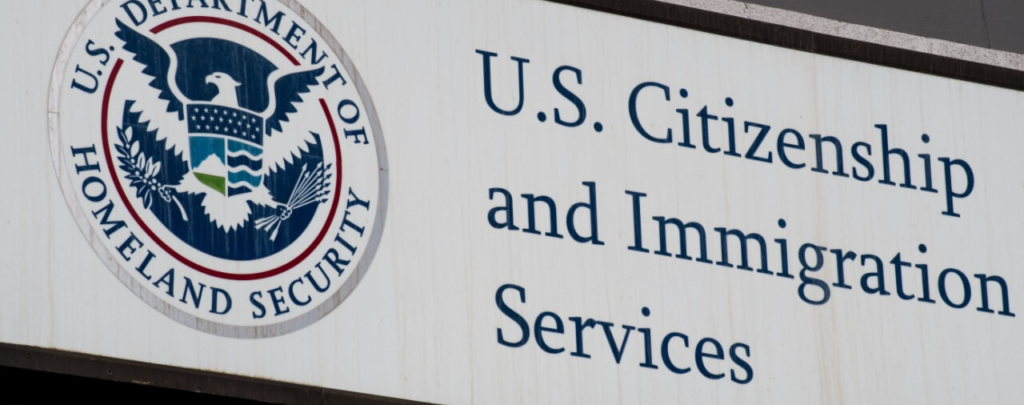Introduction
On June 4, 2018, the Supreme Court of the United States issued a per curiam (unsigned) opinion in Azar v. Garza, 584 U.S. __ (2018) [PDF version]. The Court had granted certiorari on the same day (i.e., agreed to hear the case), and then issued its decision without hearing oral arguments. In the decision, the Supreme Court vacated the decision of the United States Court of Appeals for the District of Columbia Circuit, wherein it had ordered the Government to transport an unaccompanied alien minor in its custody to obtain an abortion. That decision was issued on October 24, 2017 by the full D.C. Circuit in Garza v. Hargan, 874 F.3d 735 (D.C. Cir. 2017) (en banc) [PDF version].
Background
The case concerned an individual who entered the United States as an unaccompanied alien minor (Jane Doe). Doe was taken into the custody of the Office of Refugee Resettlement (ORR), which operates under the purview of the United States Department of Health and Human Services (HHR). She was placed in a federally funded shelter in Texas. She requested an abortion. However, the ORR did not permit her to go to an abortion clinic, citing to its policy that it does not transport individuals to obtain abortions absent an emergency and approval from the Director of ORR. The Government’s position was that a minor may either work with the Government to find and be released to a sponsor, in which case she could obtain an abortion outside of ORR custody, or alternatively the minor may seek voluntary departure to leave the United States and seek an abortion abroad.
Rochelle Garza, the Doe’s guardian ad litem, filed a putative class action lawsuit on behalf of Doe and similarly situated individuals in ORR policy. This suit challenged the constitutionally of ORR’s policies regarding the prohibition of the transportation of minors to obtain abortions.
On October 18, 2017, the United States District Court for the District of Columbia issued a temporary restraining order against the enforcement of the Government’s policy preventing Doe from being transported for an abortion. The next day, after finding that the Government had assumed for purposes of the case that Doe had a constitutional right to an abortion and then concluding that ORR’s policy did not constitute an “undue burden” on her right to an abortion under Planned Parenthood of Southeaster Pa. v. Casey, 505 U.S. 833, 876 (1992) (plurality opinion) [PDF version], a three-judge panel of the United States Court of Appeals for the District of Columbia Circuit vacated the District Court injunction.
However, four days later, on October 24, 2017, the full D.C. Circuit agreed to consider the case en banc and the court again vacated the District Court panel order. It remanded the case for further proceedings consistent with its decision.
On the same day, “Garza sought an amended restraining order,” asking the District Court to order the Government to proceed with allowing Doe to obtain the counseling required under Texas law to procure an abortion and then allowing her to obtain the abortion immediately. On remand, the District Court ordered the Government to act immediately in accord with the request by making Doe available to receive the counseling.
The Supreme Court opinion states that Doe’s representatives scheduled for her to be transported to a clinic for a counseling appointment on October 25 at 7:15 AM. The Government sought emergency review of the en banc order from the D.C. Circuit. The Government, under the impression that an abortion would not take place until October 26 after Doe had “had repeated the state-required counseling with a new doctor,” informed both Doe’s representatives and attorney that it would file the stay-application with the Supreme Court on the morning of October 25. The Supreme Court explained that what happened next remains disputed. However, the Court found that “sometime over the course of the night night [of October 24-25] both the time and nature of the appointment were changed” Specifically, the doctor who had previously counseled Doe was available to perform the abortion, and Doe’s representatives moved her appointment from 7:15 AM to 4:30 AM. Garza’s lawyers informed the Government at 10 AM, prior to the Government’s planned filing of an emergency stay application, that the abortion had been performed.
The Government did not file an emergency stay application because the issue became moot. Instead, Government filed a petition for certiorari with the Supreme Court on November 3, 2017. In its petition, the Government took the position that it had planned to seek an emergency stay of the D.C. Circuit decision, but was unable to due to the speed with which Doe obtained an abortion. Accordingly, the Government moved to vacate the decision of the D.C. Circuit in order to prevent it from being used as precedent due to the fact that the Government had not had the opportunity to appeal. The Government also asked the Court to sanction Garza’s attorneys, alleging that the attorneys had materially misrepresented when Garza would have her abortion in order to do so before the Government could seek a stay.
Supreme Court Vacates D.C. Circuit Decision
The Supreme Court granted the Government’s request to vacate the judgment of the D.C. Circuit and directed it on remand to direct the District Court to dismiss Garza’s claim for injunctive relief as moot in Azar v. Garza. The Court did so under its precedent from United States v. Munsingwear, Inc., 340 U.S. 36, 39 (1950) [PDF version], wherein it held that when a case becomes moot on its way to the Supreme Court, the Court’s practice is “to reverse or vacate the judgment below and remand with a direction to dismiss.” The Court recently applied its Munsingwear precedent in vacating two appellate court decisions upholding injunctions against the second iteration of President Donald Trump’s “travel ban” [see blog]. In so doing, the Court did not rule on the merits of whether the Government’s policy regarding abortions for aliens in ORR custody was constitutional. Instead, quoting Arizonans for Official English v. Arizona, 520 U.S. 43, 75 (1997) [PDF version], the Court explained that “[i]t would certainly be a strange doctrine that would permit a plaintiff to obtain a favorable judgment, take voluntary action that moots the dispute, and then retain the benefit of the judgment.”
The Court concluded that the situation in the instant case “[fell] squarely within the Court’s established practice.” Here, it noted, Doe’s claim for injunctive relief became moot after her abortion. The abortion occurred “sooner than expected” because of “voluntary, unilateral action” by Doe and her representatives. By effect, they “retained the benefit of [the D.C. Circuit’s] favorable judgment.” The Court took the position that the fact the case became moot before the Government’s petition for certiorari was not dispositive, concluding that “[t]he unique circumstances of this case and the balance of equities weigh in favor of vacatur.”
Supreme Court Declines to Delve Into Factual Disputes Over Attorney Misconduct Allegations
The Court declined to reprimand Garza’s counsel for the Government’s allegations that it made “material misrepresentations and omissions” that were “designed to thwart this Court’s review.” However, the Court did state that it “takes allegations like those the Government makes seriously,” and stated that “all attorneys must remain aware of the principle that zealous advocacy does not displace their obligations as officers of the court.” It added, however, that “lawyers also have ethical obligations to their clients and not all communication breakdowns constitute misconduct.” The Court did not find it necessary to resolve the dispute in order to answer the Munsingwear question.
Conclusion
Because of the Supreme Court vacature, the D.C. Court decision in Azar v. Garza, the D.C. Circuit decision will not constitute precedent going forward. However, it is important to note that the D.C. Circuit decision was vacated solely because the underlying issue had been rendered moot before the Government could file its emergency stay petition. The Supreme Court did not address the underlying issue of the legality of ORR’s policy regarding abortions for minors in its custody. It is possible, if not likely, that this issue will be further litigated in the near future.





